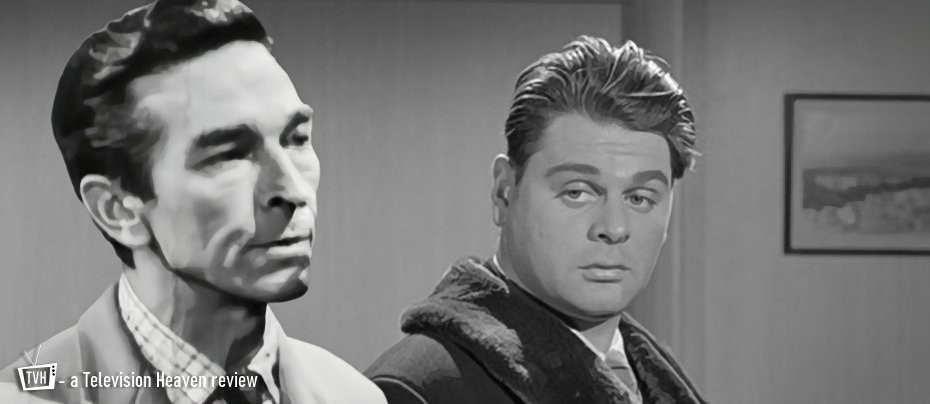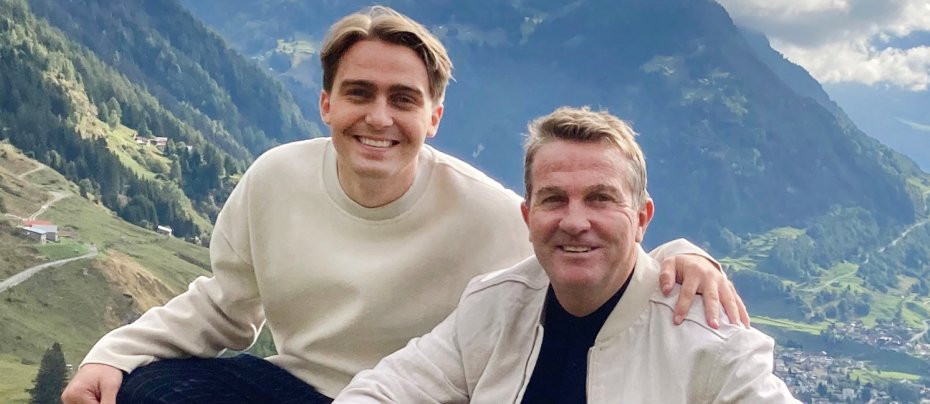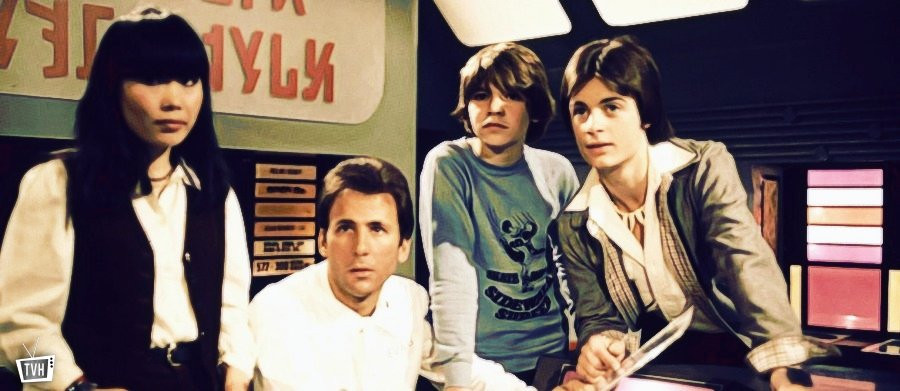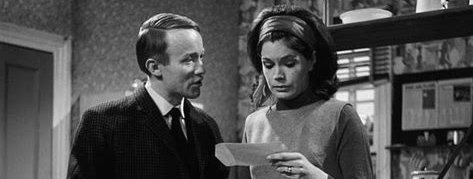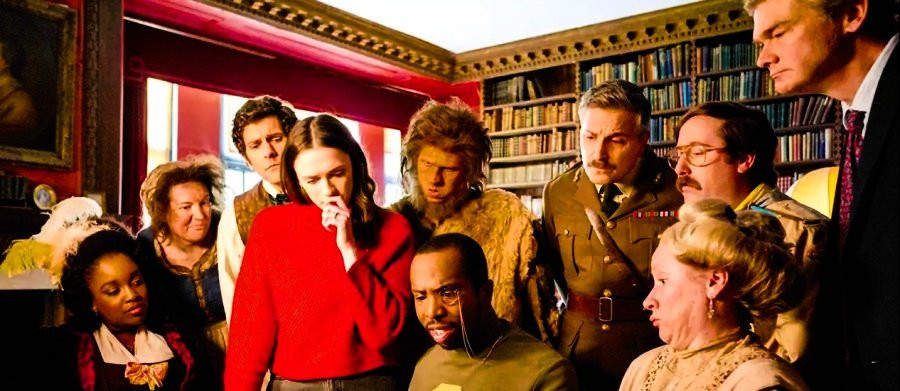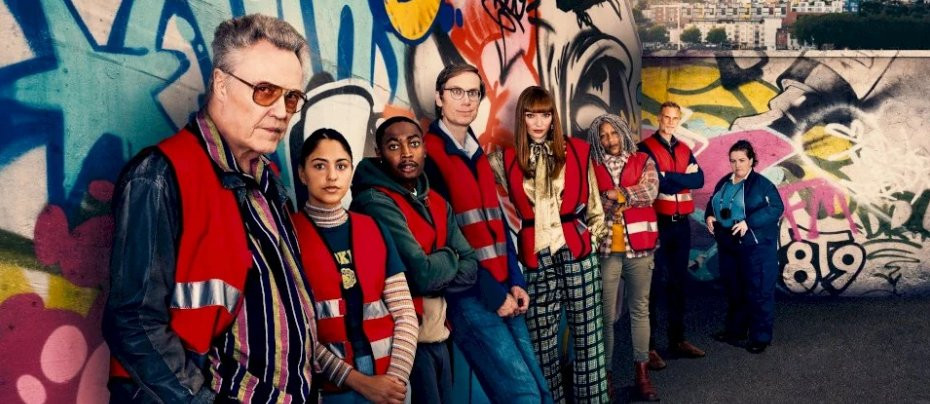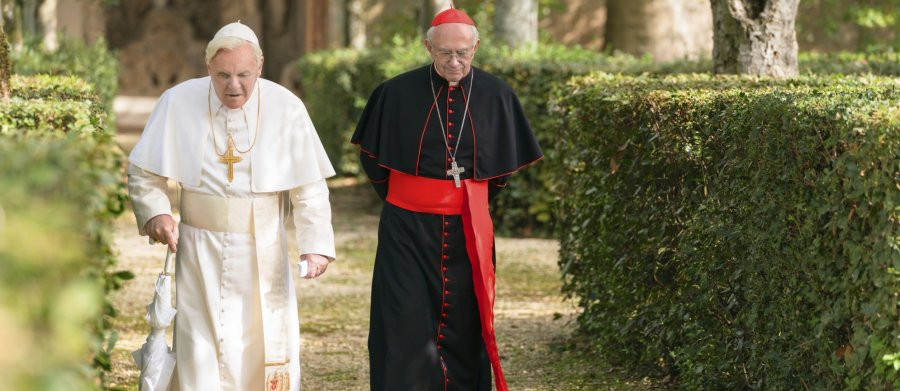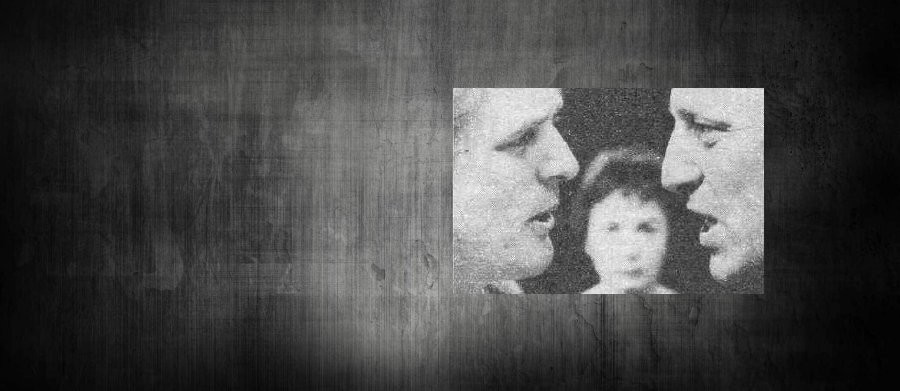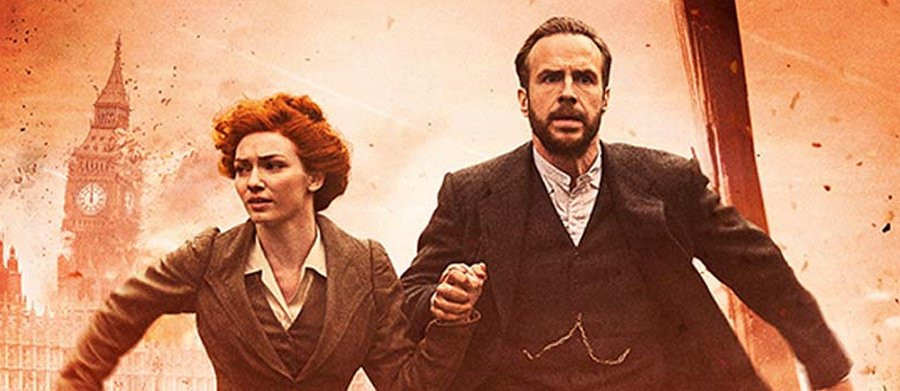
The War of the Worlds
2019 - United KingdomReview: Daniel Tessier
The War of the Worlds was the first of the BBC's big budget, prestigious productions of classic fantastic literature that aired through late 2019 to the beginning of 2020. It's also one of a sudden influx of adaptations of H. G. Wells novels that began in 2016, when the copyright on Wells's works expired in Europe, seventy years after his death. A Franco-American series aired around the same time in other territories, and multiple audio productions of The War of the Worlds and other Wells classics have been released over the last three years, taking advantage of the change in legal status. Expect a lot more of this sort of thing over the coming months and years.
Wells's novel, first published in its complete form in 1898, is, rightly, considered one of the most influential works of science fiction literature. Not quite the first alien invasion story, it was nonetheless the prototypical work for the genre, inspiring over a century's worth of tales of space invaders. A powerful story of survival and the frightening truth of humanity's smallness in the cosmos, it's also rather of its time and a very slow-paced affair. As with any story that has been adapted many times and given rise to so many derivative works, creating a new version means trying to find something new to do with the material.
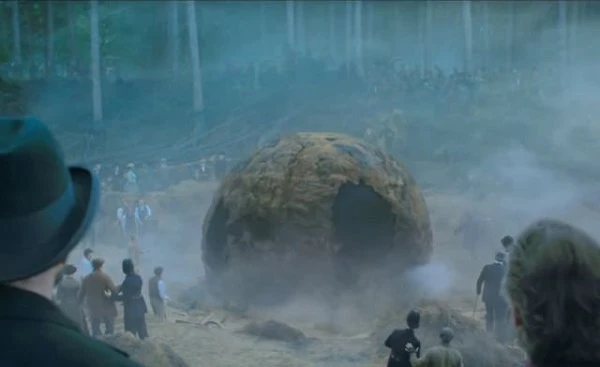
The new BBC adaptation, then, takes some liberties with the story, adding some major changes to the characters and plot. Set a little after the novel's release, beginning in 1905, the three-part serial makes full use of the BBC's talent for period drama. The Edwardian setting is just a little more modern than the end of the Victorian era, the shirts a little less starched and the characters a little more liberal. Of course, as with any of these adaptations, it's not strictly necessary to set them in historical periods. Wells wrote this as a contemporary adventure, after all, not a period piece. Nonetheless, the period setting helps to set this version of The War of the Worlds apart from the many other alien invasion films and even most other adaptations of the novel.
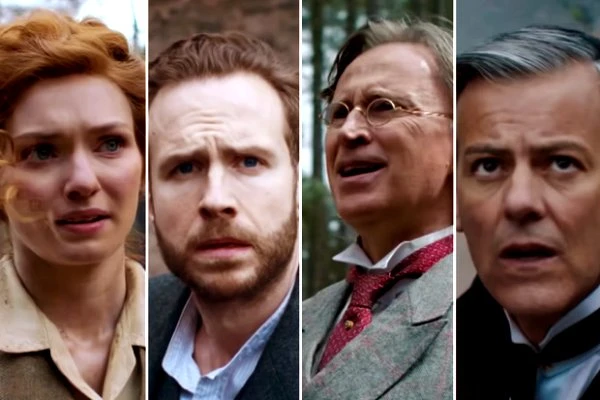
The ostensible star of the serial is Rafe Spall (a good catch for the BBC, considering his rise to movie stardom lately) as George, the young and idealistic hero. In the book, the narrator is never named – not an uncommon practice by Wells – and so screenwriter Peter Harness (Doctor Who, Wallander) names him after the author, who commonly went by his middle name in adult life. However, it's Eleanor Tomlinson (best recognised as Demelza in the modern Poldark adaptation) who becomes the heart of the story and dominates the serial. Tomlinson plays Amy, a new character created by Harness in order to compensate for the very male-oriented nature of the novel. While the narrator spent his time trying to reach his wife in the original, she was a plot point rather than a character.
Amy is George's pregnant mistress, and before the invasion, he's trying, unsuccessfully, to secure a divorce from his wife. A number of adaptations of Wells works over the years have made the author the title character, imagining him as an adventurer who later wrote up his experiences as fiction, and it certainly seems like George's similarities to H G go further than the name. Wells was notorious for his affairs, having several extramarital relationships well into his middle age, and Amy is named for his second wife.
The affair adds some scandal into the set-up, the sort of detail that seems life-or-death for the characters before events take a turn to the extra terrestrial. Poised against George is his elder brother Frederick (Rupert Graves, probably best recognised these days as Lestrade in the BBC's Sherlock). Frederick is the assistant to the Minister of War, and ideologically opposed to George's more liberal viewpoint. Also, a significant player is Ogilvy (Robert Carlisle), the mild-mannered astronomer of the novel, who in this version, survives a good deal longer is close friends with Amy and has a charming double-act with her throughout the serial. (I wonder if there's mileage in a science fiction series featuring a tweedy scientist and a forthright redhead named Amy?)

Between them, Spall and Tomlinson carry the story, both surviving together and separated for long stretches. Spall gives an earnest, sympathetic, although not always likeable performance as George, but he and Tomlinson don't really have the chemistry to carry the serial as its leading couple. Spall's best scenes come alongside Graves, as the two brothers almost come to blows when their personal and political disagreements flair up under the strain.
Tomlinson, though, shoulders the bulk of the story, spending long swathes alone or in discussion with Ogilvy. Much of her performance is silent, with director Craig Viveiros including a lot of long, lingering close-ups of her. It's hard to blame him – Tomlinson is astonishingly beautiful – and has the acting talent to carry emotional scenes without dialogue. Nonetheless, it does mean there are considerable stretches of the serial where nothing much actually happens.
Harness structures the serial cleverly, with the first episode holding off on showing us the Martians for some time but offering us glimpses of a red-hewed wasteland that we naturally assume to be their home planet. Some may dislike the wait, but it makes the eventual attack by the Martians all the more powerful. Viveiros does just spectacular work with the events of the invasion and the ongoing Martian attacks. The Martians' war machines, rendered in their classic tripod design, are predominantly shot from below, towering over the humans. They're rendered with a terrifying sense of scale.
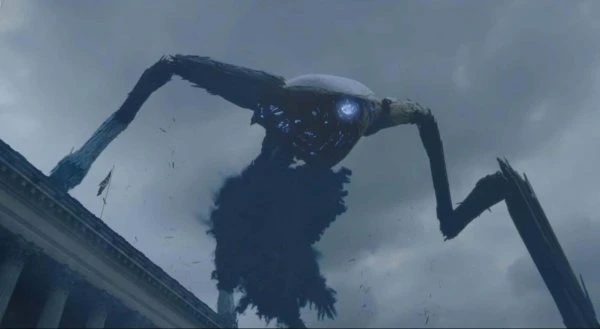
The Martians utilise all the weaponry we'd expect from their literary invasion. The devastating heat rays are followed by the toxic black smoke and the virulent red weed, which begins to infest the Earth. In a clever move, and wholly new to the story, it is revealed in the closing moments of part one that the red dustbowl we've glimpsed isn't Mars at all, but Earth, some years hence. The following two episodes play with the story's structure, jumping between the invasion itself and its long-term aftermath. Harness doesn't go as far as to have the Martians succeed in their invasion – they still die due to disease, although this is more complex than in the book – but portrays the lingering effects of their attack. While the Martians have gone, the Earth is dying. It's a powerful and timely reminder of the effects of war, which don't disappear just because the fighting has stopped.

The Martians themselves are, once they finally step out of their machines in the final instalment, effectively realised. Their design reflects that of their machines, almost insectoid creatures shooting about on three legs. How they build or operate their machines is anyone's guess, though, since they don't appear to have tentacles like their literary brothers or indeed any kind of dextrous appendage. They look creepy as anything though, particularly, in a horror movie moment inspired by their feeding habits in the novel, they pin down their victims and drain them of their vital fluids. As an adaptation, it's satisfyingly gruesome.
The script has strong anti-colonialist, anti-nationalist themes, something it's none-too-subtle about. Some viewers have savaged it for its political stance, presumably all of them having entirely missed the point of the book. Wells wrote The War of the Worlds as a staunch attack on the British Empire and its attitude to the people whose lands it invaded. He wasn't quite as blatant as Harness, but it was hardly subtle. There are several conflicts between the characters of the serial on these lines, not least George and Frederick. One notable moment sees the Minister of War gleefully expanding on the possibilities of the Martian war machines and conquest of the solar system, before he is killed in a suitably unpleasant fashion.
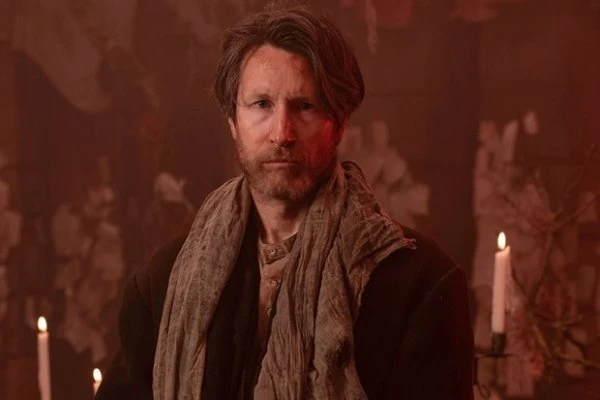
In the post-invasion scenes, Ogilvy butts horns with a priest who is holding the remnants of a human settlement together. While Ogilvy tries to prove that it was disease that killed the invaders – and thus might be used to clear the red weed which is choking the Earth – the priest refuses to allow such a notion to be considered. The priest (the excellent Jonathan Aris) believes that it would destroy the survivors to think it was anything other than their perseverance, British might, and the will of God that led to victory. Ogilvy sees it as the smallest of God's creations fighting back against the invaders (although as an avowed atheist, even this is probably an attempt to mollify the priest). Both know that there was no victory in reality; the Earth is devastated, help is not coming, and the Martians are probably just waiting for them to die out. Yet they're both trying to keep hope alive, one man through science and forward thinking, the other through the certainties of religion and patriotism. It's a powerful scene that highlights Wells’ themes.
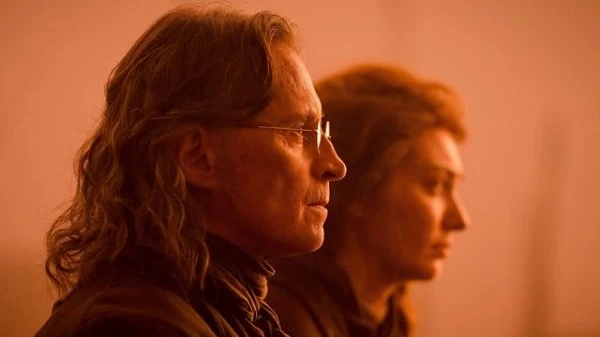
For all the impact the best scenes make, the serial moves at a glacial pace, one element that is faithful to the novel that really should have been updated. The final episode, in particular, draws out the harrowing aftermath, although it also contains some of the most arresting scenes of the invasion. Amy's scenes with her son ground the episode in something more human, but her final monologue – in which she talks about her childhood in the colonies and expounds on the cheerful natives – is so patronising that it almost undoes the impact of the anti-colonial message we've had already.
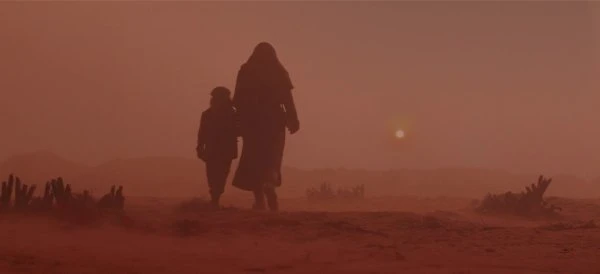
For British television's first ever attempt at adapting the classic novel, The War of the Worlds is a qualified success. A haunting, often beautiful production, it's too slow and drawn out to make truly entertaining viewing. However, it is true to the spirit of the novel and the message within, with enough to make it stand apart as a worthwhile production.
About the Writer of this article, Daniel Tessier
Dan describes himself as a geek. Skinny white guy. Older than he looks. Younger than he feels. Reads, watches, plays and writes. Has been compared to the third, fourth, fifth, sixth, seventh, eighth, tenth, eleventh and twelfth Doctors, and the Dream Lord. Plus Dr. Smith from 'Lost in Space.' He has also had a short story published in Master Pieces: Misadventures in Space and Time a charity anthology about the renegade Time Lord
Dan's web page can be here: Immaterial
Seen this show? How do you rate it?
Seen this show? How do you rate it?
Published on January 18th, 2020. Written by Daniel Tessier for Television Heaven.


